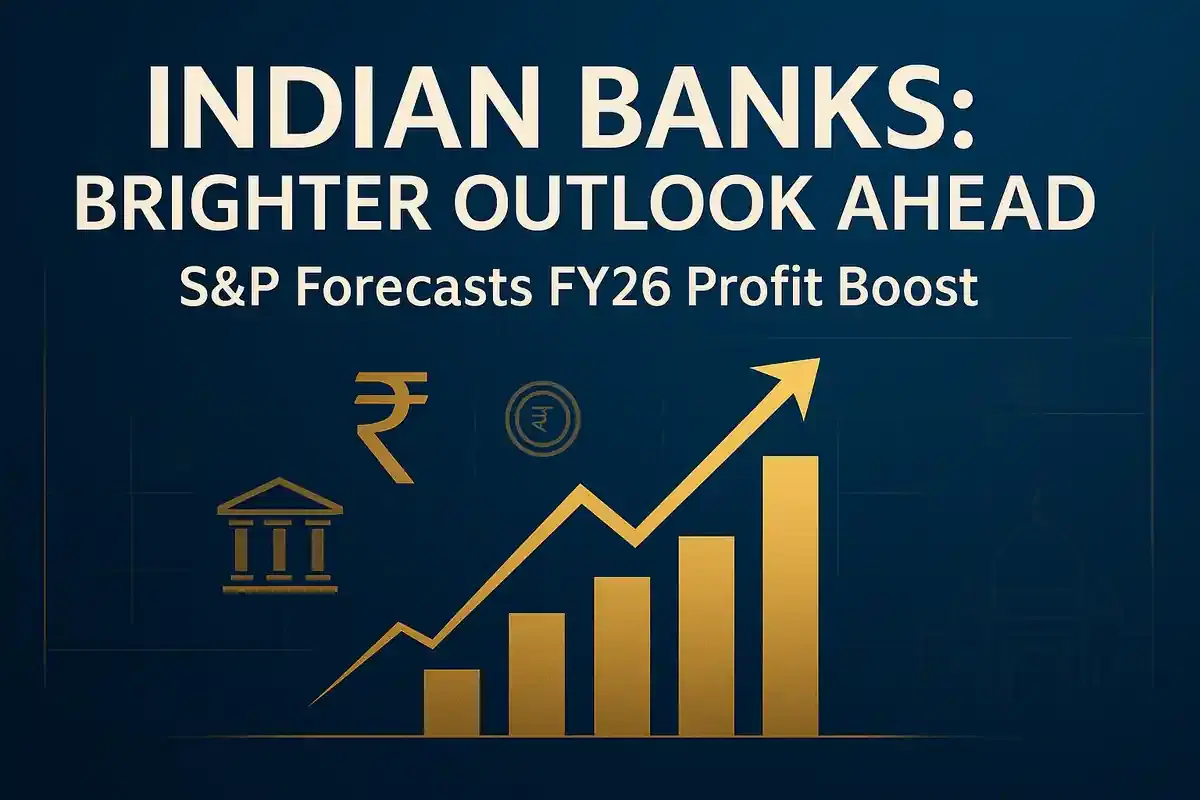S&P Global Market Intelligence Forecasts Improved Outlook for Indian Banks in FY2026
Banking/Finance
|
28th October 2025, 9:43 AM

▶
Stocks Mentioned :
Short Description :
Detailed Coverage :
S&P Global Market Intelligence has released a report indicating a positive outlook for the Indian banking sector in the fiscal year beginning April 1, 2026. The key driver for improved profitability will be the halt in declining net interest margins (NIMs). The report specifically identifies potential upside in the share prices of ICICI Bank Ltd., HDFC Bank Ltd., and State Bank of India. Notably, ICICI Bank Ltd. is projected to have the third-highest implied upside among the top 20 largest banks in the Asia-Pacific region by market capitalization.
The banking sector's gains are attributed to supportive government reforms, including simplified goods and services tax (GST) rules and reduced levies aimed at boosting economic growth. Furthermore, most economists anticipate further interest rate cuts by the Reserve Bank of India. The central bank recently maintained its benchmark repurchase rate at 5.5% and revised its GDP growth target upwards to 6.8% for the fiscal year ending March 31, 2026, despite acknowledging external sector risks like trade headwinds.
Investors are looking for a pickup in domestic consumption to enhance returns, which have been somewhat subdued due to geopolitical tensions and cautious market sentiment. Banks and Non-Banking Financial Companies (NBFCs) experienced a slowdown in lending and reduced margins in the first half of the year due to interest rate cuts, but this trend is expected to reverse next fiscal year.
Impact: This news is highly impactful for the Indian stock market and Indian businesses, particularly the financial sector. It signals potential growth and investment opportunities. Rating: 8/10
Difficult Terms: * Net Interest Margin (NIM): The difference between the interest income generated by a bank and the interest it pays out to its lenders, expressed as a percentage of its interest-earning assets. It's a key measure of a bank's profitability. * Repurchase Rate (Repo Rate): The rate at which the Reserve Bank of India lends money to commercial banks, typically against government securities. It is a key tool used to control inflation and manage liquidity in the economy. * Gross Domestic Product (GDP): The total monetary or market value of all the finished goods and services produced within a country's borders in a specific time period. It is a broad measure of a nation's overall economic activity. * Goods and Services Tax (GST): A comprehensive indirect tax levied on the supply of goods and services, applicable throughout India. * Non-Banking Financial Companies (NBFCs): Financial institutions that provide banking-like services but do not hold a full banking license. They are regulated by the Reserve Bank of India.